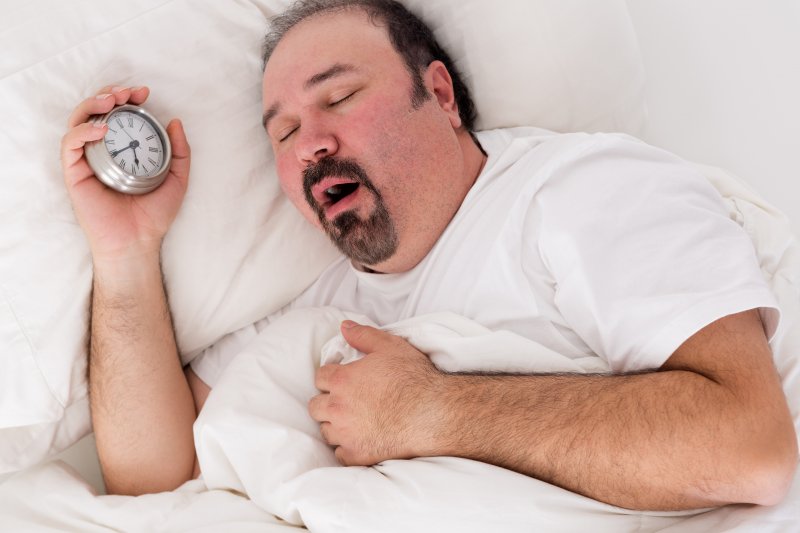
Are you suffering from weight gain and sleep apnea? Much research has shown the two go hand-in-hand and can create a difficult and unpleasant day-to-day experience for fatigued and overweight individuals. If you’re ready to do something to change your habits, start getting the rest you need, and embrace a healthier lifestyle, a local dentist explains how you can break the cycle once and for all.
Weight Gain and Sleep Apnea: How They Go Hand-in-Hand
It’s no secret that weight gain can cause sleep apnea. According to a study in the MSD Manual Professional Version, OSA is most common in people who are overweight or obese. Unfortunately, any additional pounds you put on will only worsen your sleep apnea. As excess fat builds around your neck, it places additional pressure on your airway, effectively blocking it.
Also, a study titled, “Obesity and obstructive sleep apnea: pathogenic mechanisms and therapeutic approaches” in the American Thoracic Society Journal states that weight gained throughout the abdominal area can “compress a person’s chest wall, decreasing lung volume,” which can make it harder to breathe when the airway collapses.
But can sleep apnea cause weight gain? Yes, it can. When you’re unable to rest and wake feeling fatigued the next morning, the last thing you want to do is exercise. Also, you will find that your appetite increases because of a decrease in leptin, which is the hormone that is supposed to suppress your desire to eat. As a result, you may want to eat more, which can lead to obesity.
Ways to Break the Cycle
Without proper treatment, sleep apnea and unwanted weight gain can cause additional health problems that can range in severity. Heart failure, Type 2 diabetes, stroke, atrial fibrillation, heart attack, high blood pressure, and even obesity hypoventilation syndrome (OHS) can develop.
So, what can you do to break the cycle? Here are a few tips to consider:
- Make changes to your daily diet. Begin incorporating healthier food options like fruits, vegetables, dairy, leafy greens, lean proteins. Make sure to limit or avoid sugars and starches to better manage your weight.
- Start exercising. Whether it is walking, running, weightlifting, or joining a gym, this will help to increase your heart rate and burn calories throughout the day. It will also give you increased energy.
- If significant weight loss is necessary, talk to a physician about medications or surgery.
- Talk to your dentist about oral appliance therapy to treat your OSA. Designed to treat mild to moderate sleep apnea, these are custom-made devices designed to be worn at night while you sleep. They will keep your airway open, allowing you to breathe freely and achieve much-needed rest.
Sleep apnea and obesity do not have to be your reality anymore. Take the steps to make the right changes and prepare to embrace a far better quality of life.
About the Author
Tired of feeling fatigued and overweight? Dr. Douglas Baldwin and the team at Foundation Dental Solutions can help with sleep apnea treatment. Offering proven solutions to help you navigate this common yet, harmful condition, Dr. Baldwin can equip you with the tools and tips you need to start resting better and living a healthier life. Contact us at (817) 478-4300 to learn how we can get you started on the right track.
